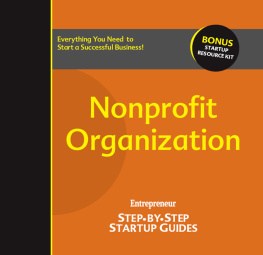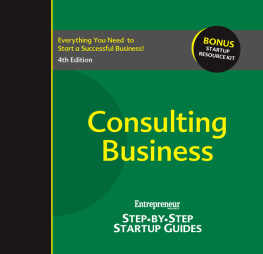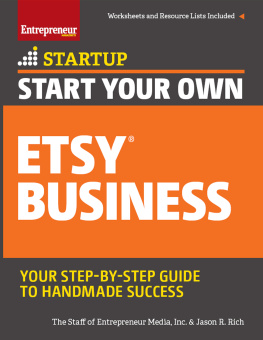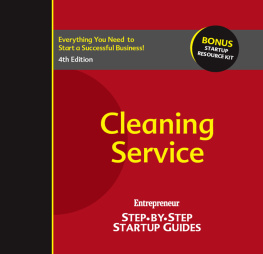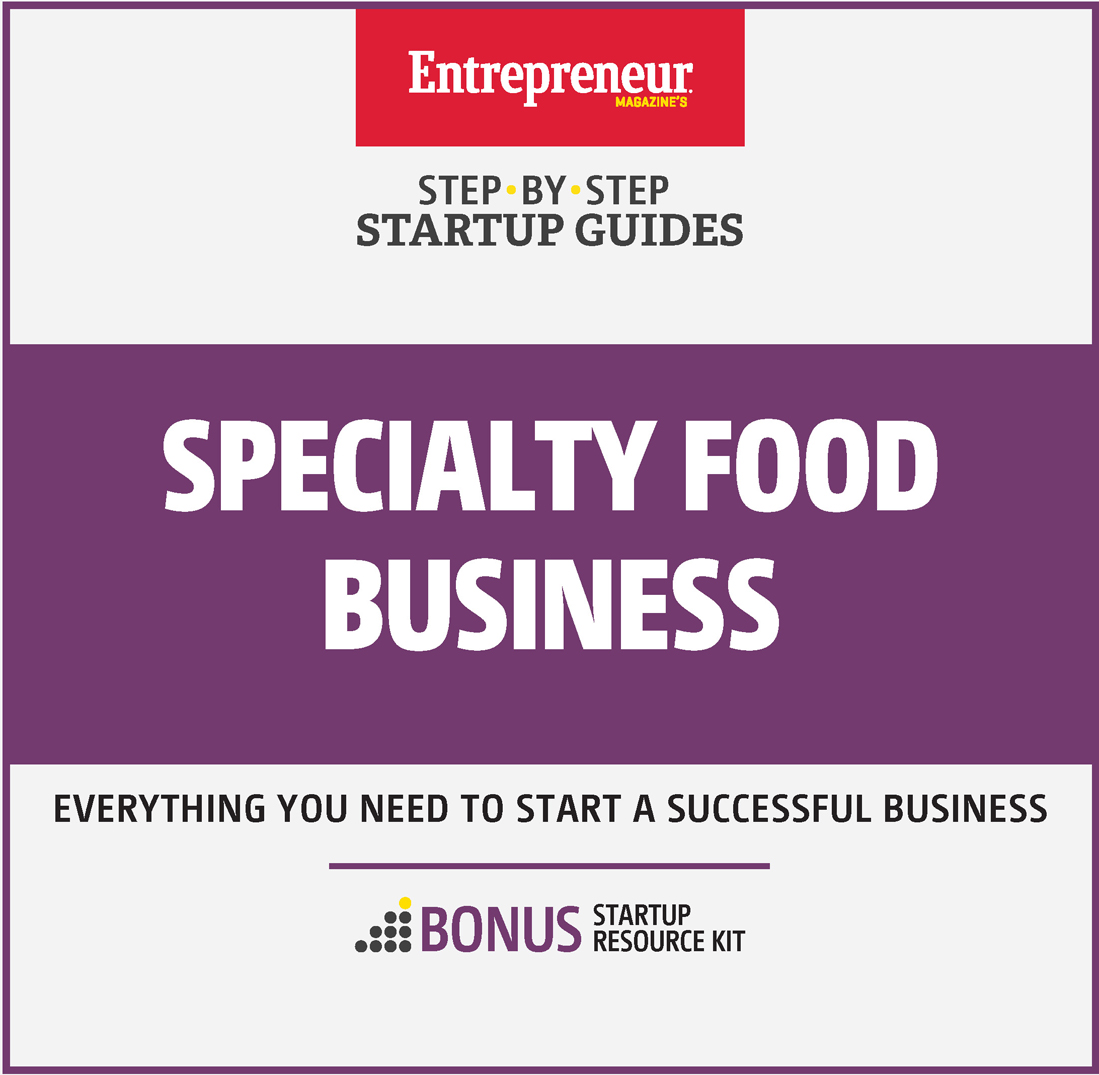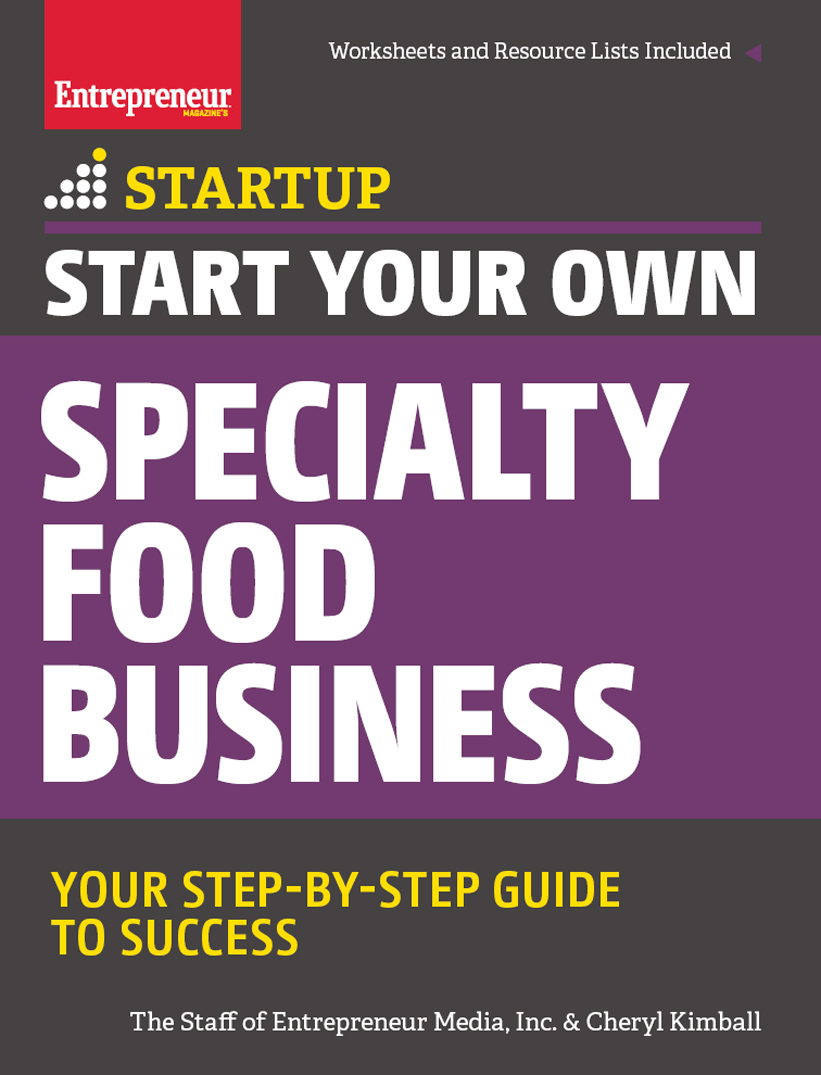Entrepreneur Press, Publisher
Cover Design: The Staff of Entrepreneur Media, Inc.
Production and Composition: Eliot House Productions
2016 by Entrepreneur Media, Inc.
All rights reserved.
Reproduction or translation of any part of this work beyond that permitted by Section 107 or 108 of the 1976 United States Copyright Act without permission of the copyright owner is unlawful. Requests for permission or further information should be addressed to the Business Products Division, Entrepreneur Media Inc.
This publication is designed to provide accurate and authoritative information in regard to the subject matter covered. It is sold with the understanding that the publisher is not engaged in rendering legal, accounting or other professional services. If legal advice or other expert assistance is required, the services of a competent professional person should be sought.
Specialty Food Business: Entrepreneurs Step-by-Step Startup Guide, ISBN: 978-1-61308-337-6
Previously published as
Start Your Own Specialty Food Business, ISBN: 978-1-59918-583-5, 2016 by Entrepreneur Media, Inc., All rights reserved.
Start Your Own Business, 6th Edition, ISBN: 978-1-59918-556-9, 2015 Entrepreneur Media, Inc., All rights reserved.
Contents

Additional titles in Entrepreneurs Startup Series
Start Your Own
Arts and Crafts Business
Automobile Detailing Business
Bar and Club
Bed and Breakfast
Blogging Business
Business on eBay
Car Wash
Child-Care Service
Cleaning Service
Clothing Store and More
Coaching Business
Coin-Operated Laundry
College Planning Consultant Business
Construction and Contracting Business
Consulting Business
Day Spa and More
eBusiness
Event Planning Business
Executive Recruiting Business
Fashion Accessories Business
Florist Shop and Other Floral Businesses
Food Truck Business
Freelance Writing Business and More
Freight Brokerage Business
Gift Basket Business and More
Grant-Writing Business
Graphic Design Business
Green Business
Hair Salon and Day Spa
Home Inspection Service
Import/Export Business
Information Marketing Business
Kid-Focused Business
Lawn Care or Landscaping Business
Mail Order Business
Medical Claims Billing Service
Microbrewery, Distillery, or Cidery
Net Services Business
Nonprofit Organization
Online Coupon or Daily Deal Business
Online Education Business
Personal Concierge Service
Personal Training Business
Pet Business and More
Pet-Sitting Business and More
Photography Business
Public Relations Business
Restaurant and More
Retail Business and More
Self-Publishing Business
Seminar Production Business
Senior Services Business
Staffing Service
Travel Business and More
Tutoring and Test Prep Business
Vending Business
Wedding Consultant Business
Wholesale Distribution Business

Table of Contents
Guide
S tarting a specialty food business is not for everyone. Just because you like food, and even if you like to prepare meals for your family or do it regularly for a few friends, making food your business and having food provide you with income is a different kettle of fish.
First, you need to have that entrepreneurial gene or the unwavering desire to start and build a business. There are certainly myriad businesses to get into besides the food business. You can even get into the food business without dealing with foodas a food writer, a supplier of food-business-related items like packaging or marketing services, or building commercial kitchens.
But for real foodies, the actual food is the thing. And for the specialty food foodie, it goes even one step furthertaking perhaps everyday food items and making them into something new and exciting, blending flavors or creating astounding presentations.
So, if you can stomach the stress of perishables, swallow the fickleness of the consumer of specialty food, and fortify yourself to keep up with the ever-changing trends in the specialty food category, perhaps the specialty food business is for you and you can create an incredibly rewarding and fun business. Reading this book will help you go into it with your eyes wide open.
The specialty food world is almost literally, as the clich goes, your oyster. The term specialty food covers a wide range of products. The mentors profiled in this book are purveyors of all sorts of specialty foods from toffee and olive oil to sweet potato salsa and gourmet chocolate bars. Specialty food also includes beverages like carbonated drinks, cider, craft beer, and local wine. Then there is yogurt, ice cream, pizza, homemade pasta, organic baby food... the list is endless.
And it doesnt stop there. Specialty food can fall not just under what you produce but how you produce it: gluten-free pasta, organic produce, sulfite-free wines. And it can also include how you package it: drinkable yogurt and wine in a box come to mind. It really is an industry that you can enter into under countless umbrellas.
Throughout this book you will see statistics that point to a growing industry. Consumers are becoming more discerning of the food they eat. And with that has come a desire for local and specialty food. As you enter the specialty food industry, you must, however, always keep in mind that a specialty food business is still a business. You may make specialty whoopie pies, which sounds like a heck of a lot of fun, but the bottom line is there is still a bottom line to think about. If you were always the one to make whoopie pies for your friends and family and decide to make a business out of making and selling whoopie pies, you will need to put a different cap on once you start thinking about your whoopie-pie making as a business. All the things that make a business work apply to something as seemingly fun as food.
That means you still need to create a solid business plan; you likely need to find funding; locationwhether its a retail shop or a production facilityis critical; employees still are the highest cost of doing business. Add keeping track of inventory and cash-flow issues and trying to fit in all the social media marketing that seems to be a requirement in todays business world, and you will quickly realize that business is still the operative word even when it comes to food.
All of the mentors interviewed for this book pointed consistently to planning as a key to success: Make a business plan, plan for a period of time without the business making income, and plan to start your business with more upfront investment than you think you will need. Maybe you even need to plan to plan. If you do more planning than you think is necessary you will go into your business with your eyes open.




